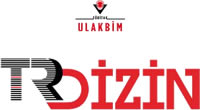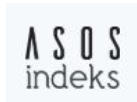Ortaöğretim Sosyoloji Dersi Öğretim Progmlarında Din Kurumu-Laiklik Ve Ders Kitaplarına Yansımaları (The Institution of Religion and Secularism in the Teaching Programs and Textbooks of the Course of Sociology)
Anahtar Kelimeler:
Ortaöğretim- Sosyoloji öğretimi- Din- LaiklikÖzet
Bu çalışmada 1924 yılından günümüze uygulanan ortaöğretim sosyoloji dersi öğretim programlarında din kurumunun ve laikliğin yer alış durumu incelenmiştir. Türkiye’de ortaöğretimde sosyoloji öğretimi öncelikle 1911 yılında Selanik İttihat ve Terakki İdadisi’nde daha sonra ortaöğretim programlarında yer alarak 1924 yılında yapılmıştır. 1924’ten günümüze 9 farklı program uygulanmıştır. Her programın içeriği kabul edildiği dönemin toplumsal, siyasal özelliklerine göre farklılık göstermektedir. Bu dönemler tek partili dönem, devrimlerin kabulü ve uygulanması, çok partili dönem, 1960-1980 arası siyasal çatışmalı dönem, 12 Eylül 1980 ve sonrası dönem yoğun toplumsal değişmenin başlangıcı olan 1990’lı yıllar ve küreselleşme süreci olarak 2000’li yıllar şeklinde sınıflanabilir.
Din kurumunun öncelikle eğitimin genel amaçları içinde ayrıca sosyoloji dersinin genel ve özel amaçları içinde öğretiminin önemli bir yeri vardır. Bu önem eğitimin siyasal işlevi ile doğrudan ilgilidir ve tartışmalı bir konudur. Laiklik ise hem Türk devletinin temel niteliklerinden birisi hem de tartışmalı konulardan birisi olması dolayısıyla önemlidir. İncelenen programlarda her iki konunun da ayrı ayrı ve birbiri ile ilişki içinde dönemin özelliklerine göre farklı şekillerde ele alındığı görülmüştür.
Referanslar
Arslanoğlu, İ. (2001). Ortaöğretimde Sosyoloji Öğretimi. Türkiye Sosyal Araştırmalar Dergisi, 4(2), 1-20.
Arslanoğlu, İ. (2001). Ortaöğretimde Sosyoloji Ders Kitapları, Kastamonu Eğitim Dergisi, 9(1), 67-80.Duman, E. Z. ve Başarer D. (2017). Cumhuriyet Dönemi Mantık Ders Kitaplarında Biyoloji Teorileri ve Pozitivizmin Etkileri, Abant İzzet Baysal Üniversitesi Sosyal Bilimler Enstitüsü Dergisi, 3(17), 267-286.
Erdem, S.(1978) Sosyoloji, İstanbul: İş Matbaası.
Mehmet İzzet (1931) İçtimaiyat. İstanbuL: Devlet Matbaası. Pazarlı, O. (1970). Sosyoloji. İstanbul: Remzi Kitapevi.
Sadak, N. (1937) Sosyoloji. İstanbul: Devlet Basımevi. Sarp, H. S.(1958) Sosyoloji. İstanbul:İnkılap Kitapevi.
Sözer Ersan; Kuramdan Uygulamaya Sosyal Bilimler Öğretim; Anadolu Üniversitesi Yay.
Eskişehir, 1998.
Tan, Mine “Ortaöğretim Kurumlarında Sosyoloji Öğretimi”, Ortaöğretim Kurumlarında Sosyal Bilimler Öğretimi ve Sorunları, T.E.D. Yay. Ankara,1987, sf.167-191.
Zabun, B.(2002). Türkiye’de Ortaöğretimde Sosyoloji Öğretimi (Yayımlanmamış Yüksek Lisans Tezi, G.Ü. Eğitim Bilimleri Enstitüsü. Ankara.
Lise Programı, Maarif Vekaleti. İstanbul H. 1340 / 1924 1935Lise Müfredat Programı, Devlet Matbaası İstanbul 1934 1937 Lise Programı, Devlet Matbaası İstanbul 1938
Lise Programı, Devlet Matbaası, İstanbul, 1952 1957 Lise Programı, Maarif Basımevi Ankara 1957 1976 Lise Programı, MEB Basımevi Ankara 1976 1986 Lise Programı, M. E. B. Basımevi Ankara 1987
Lise Sosyoloji Dersi Öğretim Programı, Tebliğler Dergisi, 2455, 1996
Lise Sosyoloji Dersi Öğretim Programı, MEB TTKB, www. ttkb.gov.tr internet adresinden alınmıştır.
Yayınlanmış
Nasıl Atıf Yapılır
Sayı
Bölüm
Lisans
Telif Hakkı (c) 2023 Anadolu Kültürel Araştırmalar Dergisi (ANKAD)

Bu çalışma Creative Commons Attribution-NonCommercial 4.0 International License ile lisanslanmıştır.













